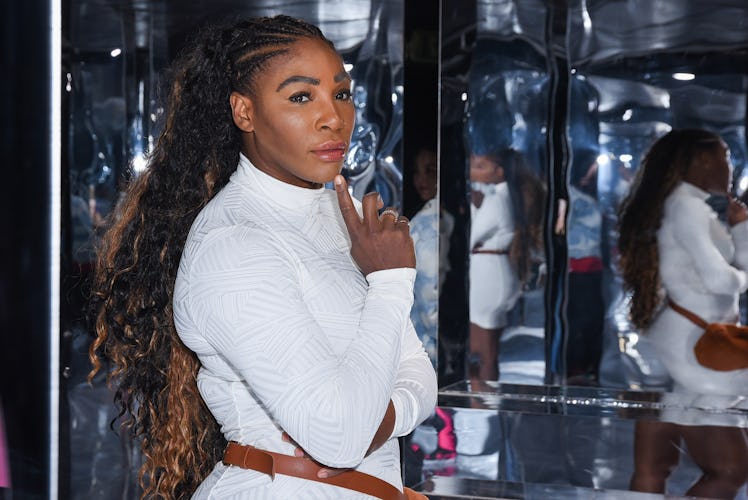
Serena Williams Got Real About The Struggles That Come With Being A "True Perfectionist"
People have often told me I'm my own worst critic, and honestly, they're right. I want to do my best at whatever I do — even something as mundane as vacuuming my living room — and when I don't quite live up to the standards I've set for myself, I can easily get discouraged. So when I heard that one of my personal role models, Serena Williams, struggles with perfectionism, too, I was excited to discover how she manages to stay balanced in spite of her perfectionist tendencies.
In a recent interview with Teen Vogue, Williams, along with 12-year-old gun control activist Naomi Wadler, spoke about the pressures of perfectionism, in addition to the challenges that can come with being a woman of color. While Williams is basically Superwoman come to life (hello: tennis star, fashion designer, mom, activist, the list goes on), she seems to realize that many of her concerns, and the issues she faces, are common to other women, too. "Now I'm training on top of running this fashion company, on top of being a full-time mom," she told Teen Vogue. "I'm super hands-on as a mom. I just take it as it is and realize that everyone goes through the same thing."
But one of the problems with being a perfectionist is that you are bound to fall short of your own standards every once in a while, which can be incredibly frustrating. Growth and acceptance are integral parts of handling her perfectionist tendencies, Williams said:
I think it's really important to realize that no day is going to be perfect. For me, that's really hard because I strive for perfection, and I feel like everything I do has to be great and has to be perfect, because I am a true perfectionist. But that's impossible. That's not reasonable. Then I realize that, OK, I had a rough day today, let's do something to make it better tomorrow. I think it's important to expect to have some really rough times when you're going through something, but always know that you can overcome it.
This isn't the first time Williams has admitted that she holds herself to high standards. "If I’m not playing well, I do get down on myself because I am a perfectionist," she told Glamour back in 2016. "No one takes a loss harder than I do. In any sport. I hate losing more than I like winning."
But, Williams went on to explain, she channels her frustration toward losing into a motivation to learn from her own mistakes, and, the athlete told the outlet, she uses that newfound knowledge to help her improve for the next match.
The additional pressures that Williams and Wadler face as women of color certainly make their lives more challenging in some aspects. In what is just one example of the racism Williams has faced as a public figure, a cartoon in the Herald Sun conflated her loss with a degrading caricature of her body.
Even someone as young as Wadler is not immune to everyday experiences of racism. In third grade, she told Teen Vogue, a boy touched her hair without her permission and then proceeded to call it "weird." "People will say, 'Oh, no, I don't see color. I'm colorblind. Your color doesn't matter,'" Wadler said during the interview. "But the truth is, it does matter. It matters that I'm black, because I'm always going to be treated differently."
To Williams, supporting other women — especially other women of color — is key to true success. "I always like to say that women really should support each other, because the success of one woman should be the inspiration to the next," she told Teen Vogue. "If we look at it that way, there would be so much more that we can accomplish."